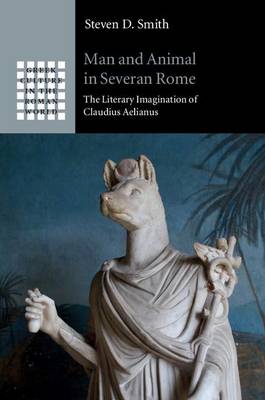Greek Culture in the Roman World
2 total works
Sexy, scintillating, and sometimes scandalous, Greek epigrams from the age of the Emperor Justinian commemorate the survival of the sensual in a world transformed by Christianity. Around 567 CE, the poet and historian Agathias of Myrina published his Cycle, an anthology of epigrams by contemporary poets who wrote about what mattered to elite men in sixth-century Constantinople: harlots and dancing girls, chariot races in the hippodrome, and the luxuries of the Roman bath. But amid this banquet of worldly delights, ascetic Christianity - pervasive in early Byzantine thought - made sensual pleasure both more complicated and more compelling. In this book, Steven D. Smith explores how this miniature classical genre gave expression to lurid fantasies of domination and submission, constraint and release, and the relationship between masculine and feminine. The volume will appeal to literary scholars and historians interested in Greek poetry, Late Antiquity, Byzantine studies, Early Christianity, gender, and sexuality.
The Roman sophist Claudius Aelianus, born in Praeneste in the late second century CE, spent his career cultivating a Greek literary persona. Aelian was a highly regarded writer during his own lifetime, and his literary compilations would be influential for a thousand years and more in the Roman world. This book argues that the De natura animalium, a miscellaneous treasury of animal lore and Aelian's greatest work, is a sophisticated literary critique of Severan Rome. Aelian's fascination with animals reflects the cultural issues of his day: philosophy, religion, the exoticism of Egypt and India, sex, gender, and imperial politics. This study also considers how Aelian's interests in the De natura animalium are echoed in his other works, the Rustic Letters and the Varia Historia. Himself a prominent figure of mainstream Roman Hellenism, Aelian refined his literary aesthetic to produce a reading of nature that is both moral and provocative.

